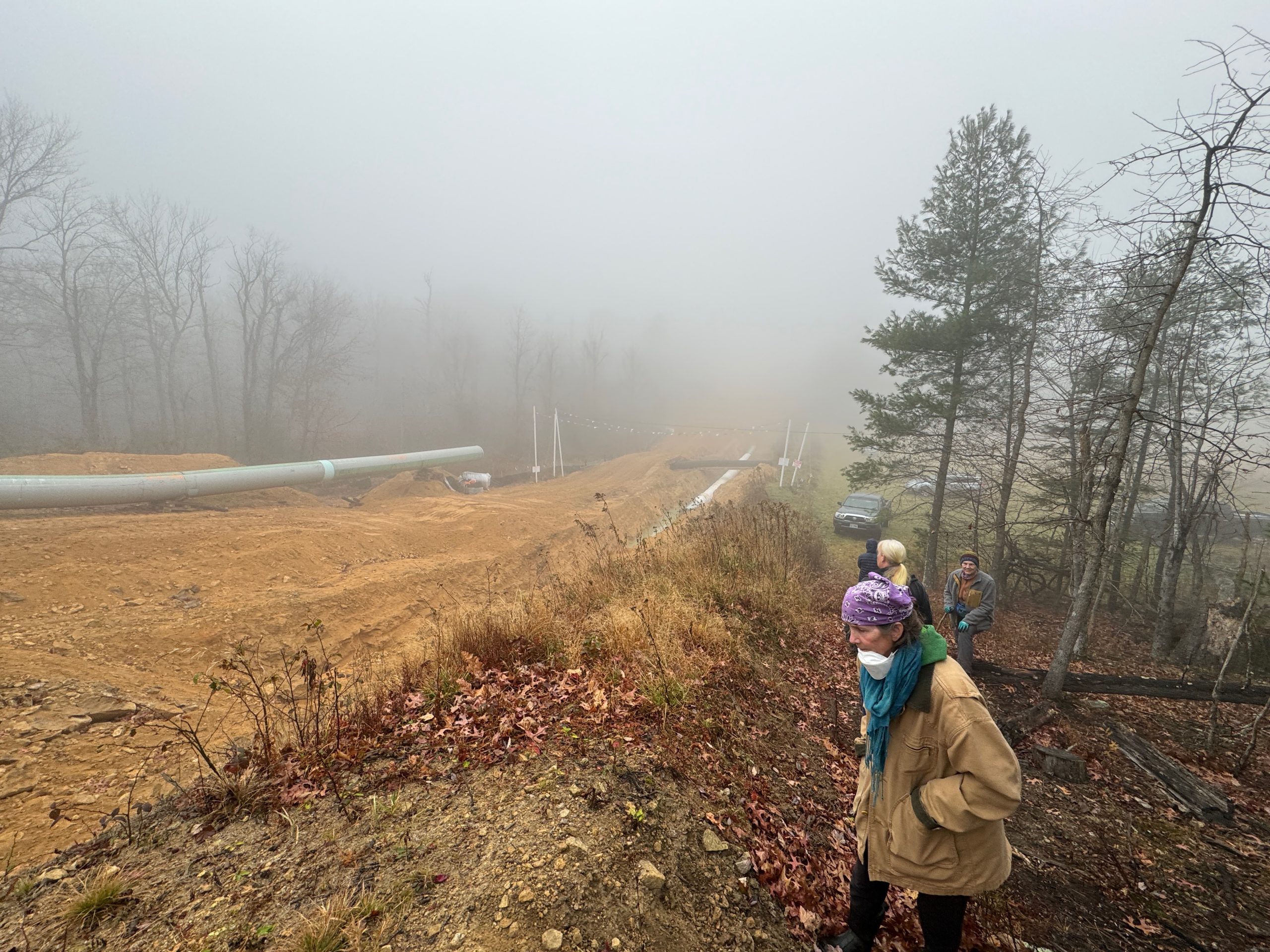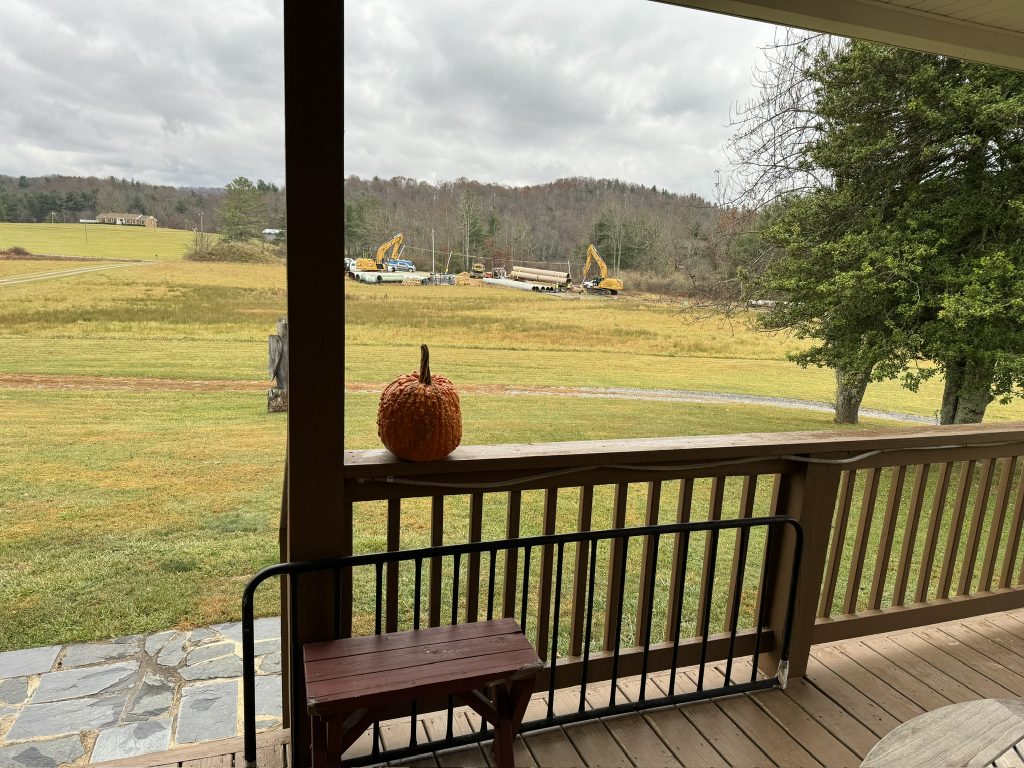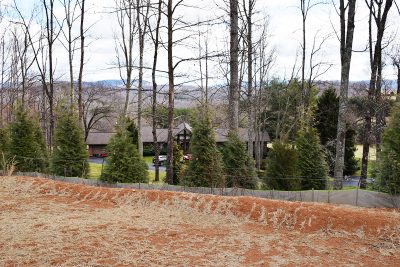Front Porch Blog

Since Congress passed last year’s Fiscal Responsibility Act — including a provision forcing approval of construction permits for the Mountain Valley Pipeline and prohibiting judicial review of those permits — I have visited multiple community members to report about what it’s like to live in the shadow of the pipeline as it was being built. These people shared their concerns about the dangers they’d face if it ever became operational.
Late on June 11, barely 24 hours after receiving a second request from MVP to put the pipeline in service, the Federal Energy Regulatory Commission approved it, ignoring — as it has from the beginning — concerns about safety, public health, climate impact, environmental degradation and more.
My thoughts turned immediately to those people I’d interviewed, sometimes sitting in their homes a stone’s throw from the pipeline right-of-way, sometimes tromping through the woods to witness the pipeline’s construction on their property, sometimes driving around to see nearby impacted areas.
I can only imagine the righteous anger, the justifiable anxiety and the terrible helplessness many of them must be feeling after fighting this pipeline for 10 years — pointing out its many flaws and dangers and winning court battle after court battle by proving developers and regulators were ignoring laws meant to protect communities and the environment — only to have those regulators allow the pipeline to go into service.

Mary Ellen Rivers, Mert to her friends, retired to Bent Mountain, Virginia, and added a front porch to the home she bought.
“I wanted to sit on my porch with my dogs and just enjoy the scenery,” she told me.
MVP dug up her front yard. For months, she dealt with construction noise and lights. And now she’s going to have to get up every morning knowing that if anything goes wrong with the pipeline, it could cut off her one escape route — if, she said, “We don’t get blown up.”
Robert Jones, a retired engineering professor living in Montgomery County, Virginia, told me he and his wife will no longer host family events once the pipeline is in service.
“I can’t imagine having my family members come here with the possibility the pipeline could explode,” he said. “I wouldn’t put my family in that position.”
Karolyn Givens doesn’t live on the Giles County, Virginia, farm she owns that she says MVP ruined when it blasted through. But she said she may have to stop renting to a long-time tenant living in the 100-year-old farmhouse.

“I can’t let you stay here if it goes through,” she said she told the tenant.

Crystal Mello, an organizer for the Protect Our Water, Rights, Heritage Coalition, doesn’t live in the blast zone, but has friends and customers for her house-cleaning business who do — including a friend who keeps a lock of hair in a safety deposit box at a local bank so that, if something bad happens, authorities might be able to identify her body.
“A lot of people I love live in the blast zone,” Mello said. “I can’t imagine life without them.”
During a press conference the day after FERC announced its decision, POWHR Co-Director Russell Chisholm said, “Any direction I leave from my home, I have to pass through MVP’s evacuation, blast and incineration zone, whether I’m picking up my mail or going in any direction to pick up groceries or visit a neighbor.”
Over the past few months, tests of the pipeline revealed anomalies and even a section of ruptured pipe. With its decision to place MVP into service, FERC has placed all of these people — and so many more — in danger. This pipeline has stripped them of their sense of security, stolen their peace of mind and put them under extreme emotional stress.
In addition to that, there’s an enormous financial toll as the value of their property plummets.
MVP has altered lands and water resources in ways that leave long-lasting damages, and its harmful effects on our climate are only just beginning.
But what I’ve learned from my interactions with even just a small slice of this pipeline-fighting community is that it is a strong, caring group of people who will continue to look out for one another and protect each other to the absolute best of their ability.
They’ve been let down by the system, their well-being sacrificed to politics and profit. But they will continue to stand and fight however they can. And Appalachian Voices will continue to support them in that fight however we can.
PREVIOUS
NEXT
Related News

Leave a comment
Your email address will not be published. Required fields are marked *

Leave a Comment